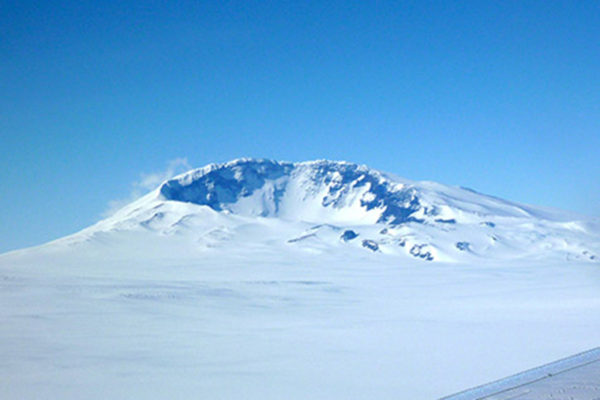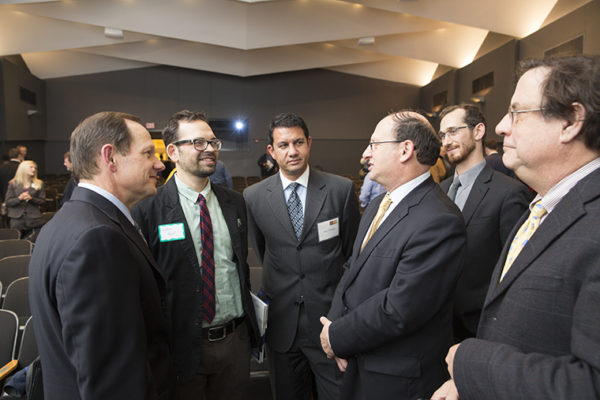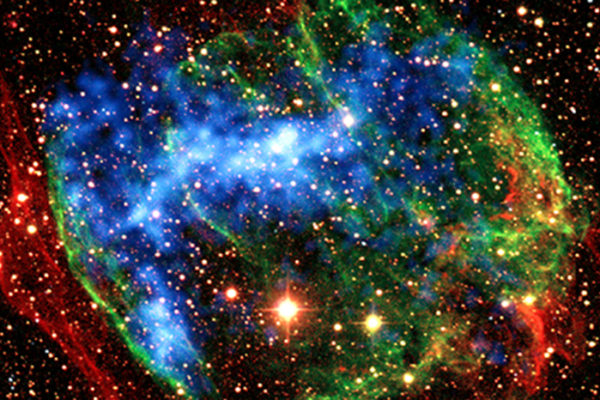Volcano discovered smoldering under a kilometer of ice in West Antarctica
A temporary seismic array in Marie Byrd Land in West Antarctica recorded two bursts of activity in 2010 and 2011. Careful analysis of the events shows they originate from a subglacial volcano at the leading end of a volcanic mountain chain. The volcano is unlikely to erupt through the kilometer of ice that covers it but it will melt enough ice to change the way the ice in its vicinity flows.
Washington University partners with Techli to support entrepreneurship in St. Louis
Washington University in St. Louis’ Olin Business School and School of Engineering & Applied Science have announced a partnership with the startup-focused news organization Techli to promote the growing entrepreneurship community in and around St. Louis.
WUSTL recognized for its leadership in the Sustainable Land Lab
Washington University, recognized for its leadership in the Sustainable Land Lab, a partnership with the City of St. Louis, and for furthering sustainability efforts on campus, was one of six entities to receive a sustainability award from the City of St. Louis Nov. 6 during the Mayor’s Sustainability Summit.
NIH support fosters diversity among PhD trainees
Washington University has received a $1.8 million grant from the National Institutes of Health (NIH) to foster student diversity in its PhD training program in the biomedical sciences. Pictured are inaugural scholars from the program.
Apply now for Bear Cub grants
Washington University’s Bear Cub Fund supports innovative translational research to help investigators demonstrate the commercial potential of their technologies. Grant applications are due Nov. 30.
The dynamic sky is topic of 2013 Robert M. Walker Distinguished Lecture Series
Shrinivas Kulkarni, McArthur Professor of Astronomy & Planetary Science at Caltech, will deliver the sixth annual Robert M. Walker Distinguished Lecture at 7 p.m. Thursday, Nov. 7, in Room 100, Whitaker Hall, on the Danforth Campus of Washington University in St. Louis. The talk, titled “Booms, Burps & Bumps: the Dynamic Universe,” describes transient astronomical objects, violent, deep sky events typically visible only for a few days. It is free and open to the public.
VIP treatment for jet lag
A small molecule called VIP, known to synchronize time-keeping neurons in the brain’s biological clock, has the startling effect of desynchronizing them at higher dosages, says a research team at Washington University in St. Louis. Neurons knocked for a loop by a burst of VIP are better able to re-synchronize to abrupt shifts in the light-dark cycle like those that make jet lag or shift work so miserable.
Gill, Lu to promote safety of cars, planes and other cyber-physical systems
Christopher Gill, PhD, has received a four-year, $398,000 grant from the National Science Foundation to promote the improved safety of cyber-physical systems such as cars and planes.
Samurai sword protein makes strategic cuts in cell skeletons
Ram Dixit’s lab at Washington University in St. Louis has shown that a protein named after the katana, or samurai sword, plays a crucial role in patterning the “skeleton” inside plant cells. The work provides a clue to the long-standing mystery of how the cytoskeletons within both plant and animal cells become organized in function-specific patterns.
For Holocaust Memorial Lecture, Sarah Wagner tells how DNA technology helped close a painful chapter in Bosnian genocide
Among the victims who lost their lives in Bosnia during the 1992-1995 genocide were 8,000 Muslim males living in Srebrenica whose bodies were dumped into mass graves. There was little hope for their loved ones of identifying their remains until the advent of DNA technology. For the Holocaust Memorial Lecture, anthropologist Sarah Wagner will tell the story of how science helped close a painful chapter for the millions who lived through the worst atrocity in European history since World War II.
Older Stories




